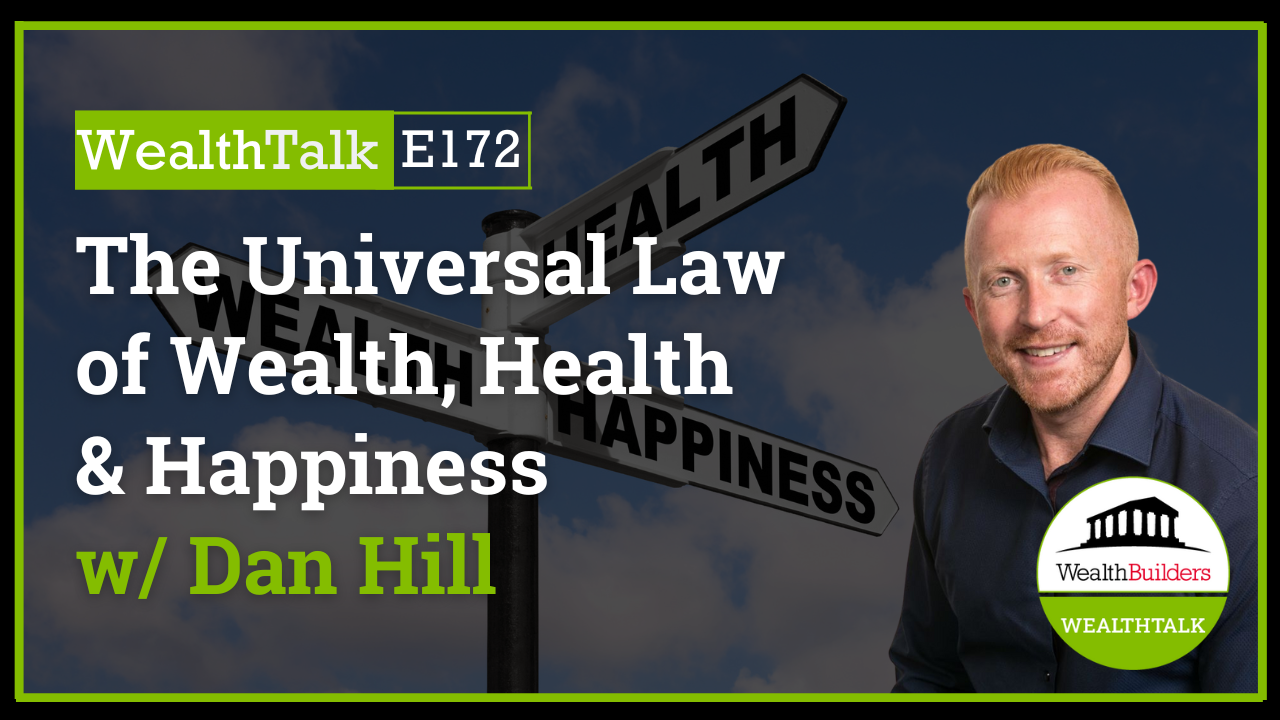Financial Independence through Health & Wellness: Nurturing Mental Health for Sustainable Financial Success and Overall Well-Being

Key Takeaways
- Understanding the connection between mental health and financial success is crucial for sustainable well-being.
- Stress management and emotional intelligence are critical components of mental well-being that significantly impact financial decisions.
- Adopting healthy financial habits is essential for building a secure financial future.
- Integrating health and wellness into your financial planning can lead to long-term prosperity.
- Starting with small, manageable steps today can set you on the path to financial independence and overall well-being.
Unlock Your Financial Freedom:
Imagine living where your financial worries are a thing of the past and your well-being is as robust as your bank balance. This isn't just a dream; it's a goal within your reach. But here's the key: achieving financial independence isn't just about making money—it's also about nurturing your mental health. Let's explore how you can unlock this freedom for yourself.
Understanding the Mental Health Connection
Did you know that your mental state can have a profound effect on your financial decisions? It's true. When stressed, anxious, or overwhelmed, you're more likely to make impulsive choices that can harm your financial future. Taking care of your mental health is the first step towards financial success.
Unveiling the WealthBuilders' Blueprint
WealthBuilders believes in a holistic approach to wealth. It's not just about the figures in your bank account; it's about building a life where health and wealth grow together. To start this journey, focus on the blueprint that connects mental well-being with financial acumen.

Core Components of Mental Well-Being
Your mental well-being is the foundation upon which you can build your financial success. Let's break down the core components that you need to focus on:
Stress Management: It's essential to learn how to manage stress effectively. High-stress levels can cloud your judgment and lead to poor financial decisions. Therefore, stress reduction techniques such as mindfulness, exercise, or hobbies can keep your mind clear and focused.
Emotional Intelligence: This involves understanding and managing your emotions, as well as the feelings of others. With high emotional intelligence, you can navigate the ups and downs of your financial journey without letting emotions derail your plans.
Resilience: This is your ability to bounce back from setbacks. There will be ups and downs in the financial world, but with resilience, you can learn from your mistakes and come back stronger. Understanding the economic and mental health relationship is critical to developing this resilience.
Example: Jane, a WealthBuilders' client, used to make impulsive purchases whenever she felt stressed. After learning stress management techniques, she started channelling her emotions into activities like yoga and journaling. This not only improved her mental health but also her spending habits, leading to significant savings.
The Role of Stress Management
Stress can be a huge barrier to financial success. When stressed, we might ignore our budgets or make hasty decisions that can lead to debt. Therefore, managing stress is a critical skill for anyone looking to achieve financial independence.
For instance, consider the story of Tom, who found himself overwhelmed by financial pressures. By incorporating daily meditation into his routine, he reduced his stress levels. He gained the clarity needed to re-evaluate his financial strategies, leading to more informed and beneficial choices.
Here are some stress management strategies you might consider:
- Practice mindfulness meditation to stay present and reduce anxiety.
- Exercise regularly to release endorphins and improve your mood.
- Get enough sleep to ensure your mind is rested and ready for decision-making.
- Allocate time for hobbies and relaxation to recharge your mental batteries.
Building Resilience Through Emotional Intelligence
Emotional intelligence is your superpower in the journey to financial independence. It allows you to keep your emotions in check when making financial decisions. It's about being aware of your emotional triggers and managing them proactively.
Consider Sarah, who once struggled with her finances due to emotional spending. By becoming more emotionally intelligent, she learned to recognise the difference between 'want' and 'need,' leading to a healthier relationship with money and a more secure financial future.
To enhance your emotional intelligence, try the following:
- Reflect on your emotional triggers and how they affect your spending.
- Communicate openly about money with family and friends to build a support network.
- Set financial goals that align with your values to stay motivated.
- Practice gratitude to focus on what you have rather than what you lack.
Mapping Your Financial Well-Being Path
With a solid understanding of the mental aspects of financial success, it's time to map out your path to economic well-being. This involves setting clear goals, creating a plan, and sticking to it.
Crucial Financial Habits to Cultivate
Healthy financial habits are the building blocks of wealth. They're the daily routines that, over time, lead to financial freedom. Here are some habits to get you started:
- Create a budget that reflects your income, expenses, and savings goals.
- Build an emergency fund to protect yourself from unexpected costs.
- Invest in your education to increase your earning potential.
- Seek advice from financial experts to guide your financial decisions.
By focusing on these habits, you'll take proactive steps towards securing your financial future. And remember, it's not about perfection; it's about progress. Even small changes can make a big difference over time.
Stay tuned for the next instalment, where we'll explore the practical steps to integrate health and wellness into your financial planning and reveal WealthBuilders' strategies for long-term prosperity.
Leveraging Self-Care for Fiscal Growth
It's no secret that when you're feeling your best, you perform better in all areas of life, including managing your finances. Self-care is an investment in your overall productivity and, by extension, your financial health. When prioritising your well-being, you're less likely to make impulsive financial decisions and more likely to approach your finances with a clear, focused mind.
Self-care can take many forms, but simple actions can profoundly affect your finances. For example, getting enough sleep can lead to better concentration and decision-making skills. Regular exercise can improve your physical health and reduce stress, leading to a more disciplined approach to spending and saving.
- Set aside time each day to relax and recharge through reading, meditation, or a walk in nature.
- Invest in your health with regular check-ups and preventive care, which can save money in the long run.
- Keep a gratitude journal to remind yourself of the abundance in your life, reducing the urge to spend on things you don't need.
WealthBuilders' Strategies for Long-Term Prosperity
At WealthBuilders, we're not just about quick fixes but about creating sustainable strategies that lead to long-term prosperity. It's about making wise choices today that will set you up for success tomorrow and well into the future.
Personal Growth Equals Financial Growth
One of the most powerful strategies is to view personal growth as a catalyst for financial growth. Investing in learning new skills, whether financial literacy or professional development, opens up opportunities for increased earnings and economic stability.
Consider taking courses that can boost your career prospects or attending webinars that teach you about investing and money management. By expanding your knowledge, you're not just growing personally; you're also adding to your financial toolkit.

Investing in Health to Fuel Financial Plans
Take the example of Emma, who invested in a gym membership and a healthy meal plan. Not only did her physical health improve, but she also found herself more energetic and productive at work, leading to a promotion and a salary increase. Her investment in her health had a direct, positive impact on her financial growth.
Now, let's discuss how you can apply these principles in your life. Investing in your health doesn't always mean spending money. It can be as simple as walking or cycling to work instead of driving, which saves on transportation costs and improves your fitness.
Remember, the healthier you are, the less you'll spend on medical bills in the long run. This doesn't just apply to physical health; taking care of your mental health can prevent lost income due to stress-related illnesses and burnout.
Beginning Your Wealth & Well-Being Journey
Embarking on a journey to financial independence and well-being can feel daunting, but it doesn't have to be. It all starts with taking that first step and committing to yourself and your future.
First Steps to Take Today
So, what can you do today to start this journey? Begin by assessing your current financial situation. Take a look at your income, expenses, debts, and savings. This will give you a clear picture of where you stand and what areas you need to work on.
Next, set realistic financial goals. These could be short-term goals like saving for a holiday or long-term objectives like building a retirement fund. Having clear goals will help you stay focused and motivated.
Setting Milestones for Success
Setting milestones along the way is essential as you work towards your financial goals. These milestones will serve as checkpoints to ensure you're on the right track and give you opportunities to celebrate your progress.
For example, a milestone could be paying off a credit card, reaching a certain amount in savings, or investing in your first stock. Celebrating these victories, no matter how small, can provide a sense of achievement and encourage you to keep going.
Remember, financial independence and well-being are not destinations; they're journeys. And like any journey, there will be obstacles along the way. But with the right mindset and strategies, you can overcome these challenges and build a life of prosperity and health.
Now, let's dive into some frequently asked questions that might be on your mind as you navigate the intertwining paths of mental health and financial success.
FAQ: Your Questions Answered
You might have some questions about how all of this works in practice. Let's address some of the most common queries:
How does mental health affect financial decisions?
Your mental health has a significant impact on how you make financial decisions. When stressed or anxious, you're more likely to make impulsive purchases or neglect your financial planning. Conversely, when you're in a good mental space, you're more capable of making thoughtful, informed decisions that align with your financial goals.
- When feeling overwhelmed, take a step back and give yourself time before making any financial commitments.
- Talk to a trusted friend or financial advisor if you struggle to decide.
- Remember that it's okay to seek professional help if your mental health is affecting your financial well-being.
How does mental health affect financial decisions?
It's simple: when you're in a good place mentally, you're better equipped to handle the complexities of financial decision-making. A calm, clear mind can assess risks and benefits precisely, while a troubled mind might lead to rash decisions. For instance, if you're feeling anxious, you might spend money to feel better, leading to regret and further stress.
What are some WealthBuilders' practices to combat financial stress?
At WealthBuilders, we advocate for a proactive approach to managing financial stress. This includes setting up a solid financial plan, regularly reviewing and adjusting it as necessary, and practising mindfulness to stay grounded. Additionally, establishing an emergency fund can provide peace of mind, knowing you're prepared for unexpected expenses.
Can a balanced diet impact my financial well-being?
Absolutely! A balanced diet contributes to better physical and mental health, which can affect your productivity and financial decisions. Good nutrition helps you stay focused and energetic, leading to more effective work and better economic outcomes. Plus, being healthy can save you a lot of medical bills over time.
What are the first steps to take towards financial freedom?
The journey to financial freedom begins with understanding your current financial situation. Create a detailed budget, track your spending, and set specific, achievable financial goals. Then, start building an emergency fund to cushion against life's surprises. Most importantly, educate yourself about personal finance to make informed decisions.
How do emotional intelligence and financial success relate?
Emotional intelligence is the ability to understand and manage one's emotions and those of others. When it comes to financial success, this means staying calm during market fluctuations, not making impulsive purchases, and effectively negotiating salaries or financial terms. It's about making decisions based on logic, not emotion.
What daily habits contribute to both mental health and financial independence?
- Start each day with a plan to avoid feeling overwhelmed.
- Practice gratitude to maintain a positive outlook.
- Review your financial goals regularly to stay on track.
- Take breaks and engage in activities that reduce stress.
How can I align my spending with my wellness goals?
Aligning your spending with your wellness goals starts with identifying what truly matters to you. Allocate your budget towards activities and items that enhance your well-being, such as gym memberships, healthy food, or self-development courses. Avoid spending on things that don't contribute to your happiness or health.
What's the connection between stress management and money management?
Stress management is critical for effective money management. When stressed, you're more likely to make financial decisions based on emotion rather than reason. By managing your stress, you can approach your finances with a level head, make thoughtful decisions, and stick to your financial plan.
Are there WealthBuilders' tools to track both financial and physical health progress?
Yes, WealthBuilders provides tools and resources to help you track both your financial and physical health. From budgeting apps to wellness programs, we offer solutions to help you monitor your progress and stay motivated on your journey to financial independence and well-being.
How can I mentally prepare for the journey of financial independence?
Mentally, preparing for financial independence involves setting realistic expectations, being patient with yourself, and staying committed to your goals. It's also essential to build a strong support network and keep learning. Remember, it's a marathon, not a sprint, and your mindset is just as important as your actions.
Getting started with WealthBuilders
Join today at WealthBuilders Membership
Email:
When you contact us, please let us know if you found this article helpful or interesting. It also helps us to learn how you discovered us. Thank you for considering WealthBuilders. We are a friendly team and always happy to help.
